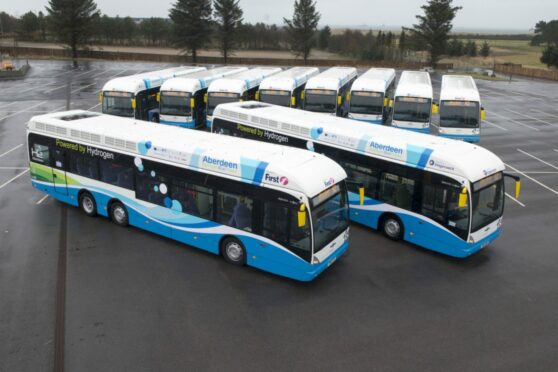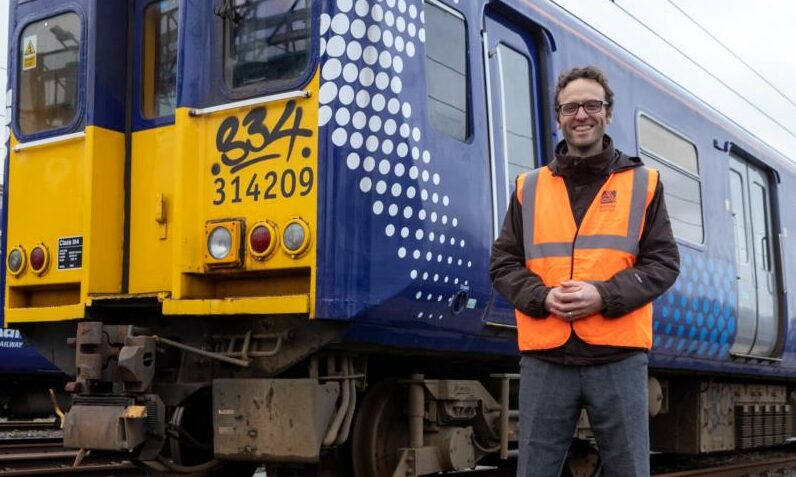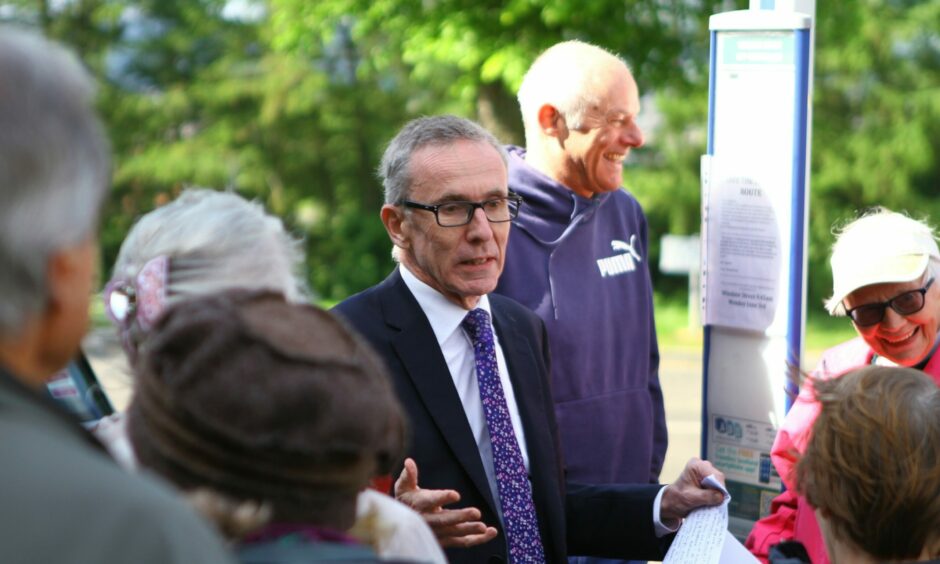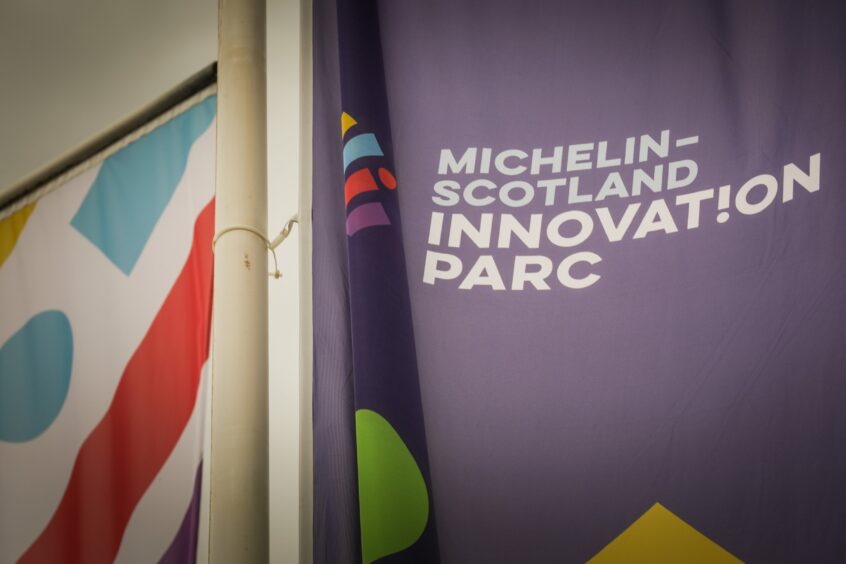A green energy project that would have seen 12 buses powered by hydrogen fuel cells introduced in Dundee has been scrapped.
The double-deckers would have been rolled out in the city in a joint project funded by both the council and a private firm.
But a recent budget review means the £2.9 million council cash needed has been cut due to huge rises in construction costs requiring savings elsewhere.
The review has also seen a number of other projects scrapped or scaled back.
Technology offers zero-emissions
Hydrogen fuel cell buses offer a zero-emission “drop-in” replacement for diesel buses which emit water vapour from the tailpipe.
The technology involves taking out the old diesel or petrol systems and putting in hydrogen fuel cells and a battery.
And instead of plugging it into the mains to recharge, it has to be filled up with hydrogen at a specialised refuelling station.
Arcola Energy was initially involved in getting the project up and running at Michelin Scotland Innovation Parc but pulled out a year ago.
A spokesperson said the firm has not been involved in any recent discussions on its future.
It comes as Scotland seeks to reduce greenhouse gas emissions to net-zero by 2045.
In recent years Dundee City Council has put green energy near the top of its agenda while also investing in sustainable transport such as cycling routes costing millions.
Hydrogen buses ‘less of a priority’ amid cuts
Lib Dem Councillor Fraser Macpherson says the group support the move to scrap the hydrogen investment.
And he says there are other areas which need to be prioritised for the time being.
He said: “If I’m being perfectly honest with you, it’s the one (project) we felt was less of a priority and we didn’t look to save it (in the budget revision).
“At the end of the day, decisions needed to be made on what to cut due to a big rises in construction costs.
“Dundee leads the way in the Scottish authorities in terms of the council’s electric fleet as well as electric charge points and bus companies themselves have done a lot on electric and hybrid buses.
“In terms of priority issues, we felt protecting social care funding was more important but unfortunately the vote went along SNP lines and this area also received a £1.5 million cut.”
The hydrogen technology turns the vehicle electric and it’s preferred for vans, trucks, buses and trains because it is more energy dense compared to batteries used for cars.
It means they can go for longer without refuelling when running on hydrogen.
A similar project has already been rolled out in Aberdeen that was hailed as a “world first”.
Operator First Bus unveiled the fleet of hydrogen-fuelled double-deckers in 2021, with 15 vehicles costing £8.3million in council-secured grants from the EU and Scottish Government.
Similar buses are also in operation in London, Birmingham, Dublin and Belfast.
A Dundee City Council spokesperson said the viability of the project hinged on private funding and it was not responsible for its management.



